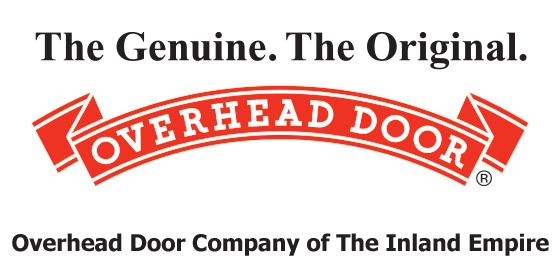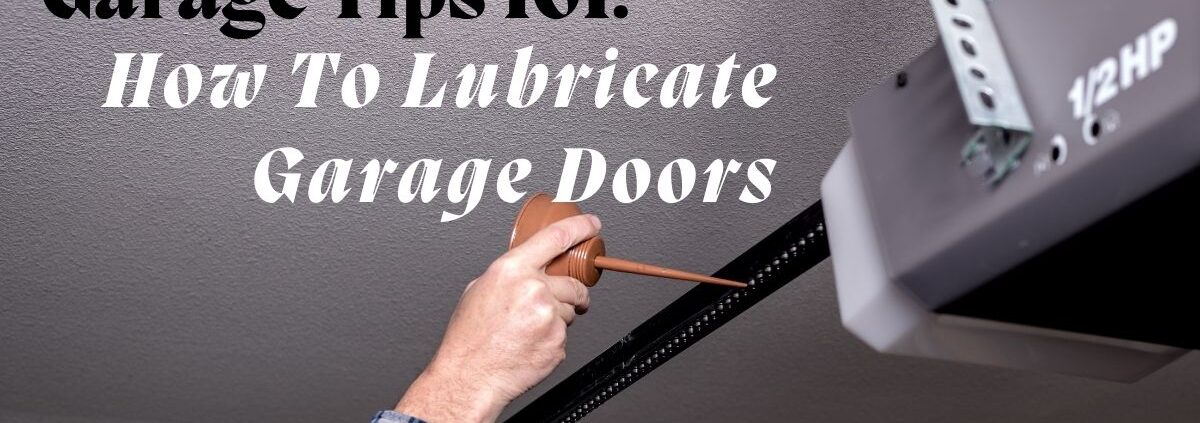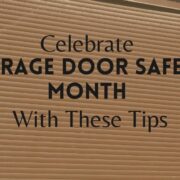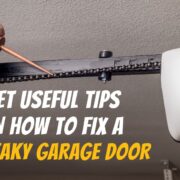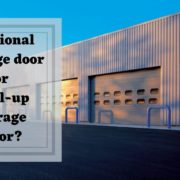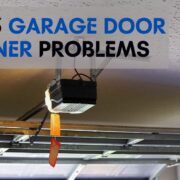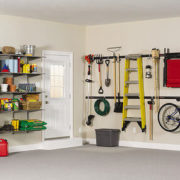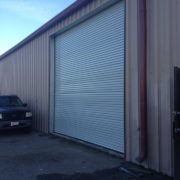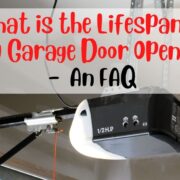Garage Tips 101: How to Lubricate Garage Doors
Though your garage serves multiple functions such as protection and storage for your products and equipment, it could also be a source of irritating noise. A noisy garage door can worsen over time and wears down the overall integrity of your door. Luckily, fixing a noisy garage door is now within your reach as a DIYer though this might require a bit of technical knowledge. In this case, knowing how to do proper lubrication of your garage door can save you from hassles.
Instead of spending big on repairs and even replacement, learn how to lubricate garage doors with these tips. And you will have a quieter and smoother functioning garage door in no time!
What Might Be the Causes of a Noisy Garage Door?
There could be a variety of reasons that might cause this unfortunate matter. Check out these common issues why you might have a noisy type garage door.
- When garage doors including the garage door parts show signs of wear and tear. The rollers usually get rusty and produce sound.
- When the nuts and bolts become loose, it will produce a screeching sound when you open and close your garage door.
- When the garage door has come off the track, opening and closing it will produce a sound that is louder than the normal sound. If you hear this, the garage door has fallen off-balance and you need to call a professional garage door company. They can help you in fixing the door’s alignment.
- When moving parts of the garage door need lubrication to function such as hinges and rollers.
- When you have garage door opener issues, you might need to repair or replace them. A rattling sound is a sign of that.
Choose the Right Type of Lubricant
You can choose and buy the best lubricant for your garage door at any local hardware store. These lubricants can help prevent operating issues and keep the garage door running smoothly. You can use a white lithium or silicone spray with a straw so you can easily spot small moving parts and areas that are difficult to reach.
Best Type of Lubricant
a. Lithium-based lubricants (lithium grease) protect against friction and metal-on-metal contact. A lithium grease product is more likely to stay on the surface so they are good for lubricating rollers, friction points, and rails. This type can resist weather but doesn’t provide much waterproofing.
Some oil-based lubricants for garage doors are not always the most reliable option. They become less effective in extreme temperatures since they dissipate quickly. Moreover, they leave a sticky or drippy mess.
b. Silicone-based lubricants (eg. silicone spray) provide moisture resistance and are long-lasting. They work best into coiled springs, tight hinges, and other difficult-to-penetrate areas. They are the best choice for areas with hot summers and cold winters.
How to Lubricate Your Garage Door?
- Wear a mask and nitrile gloves for your protection since most of the lubricants are aerosol sprays.
- Close the garage door.
- Disconnect the opener motor or unplug the garage door from the outlet on the ceiling. Use a ladder.
- Just vacuum out the garage door’s tracks. Lubricating the tracks will attract dirt and dust that will create traps and could lead to reduced performance. Then clean the tracks of your garage door with a damp cloth by wiping them down.
- Get your garage door’s lubricant. Start spraying the stems and ball bearings on the steel rollers or garage door rollers and not the wheels themselves. No need to grease if the rollers are non-metal.
- Spray or grease the garage door spring.
- For torsion springs, spray the head plate bearing surfaces, the tube, and coils lightly. Torsion springs rotate while extension springs stretch.
- Spray down the two circular metal pieces on each end at the top of the garage door or the outside bearing plates.
- Spray at the pivot points of the steel hinges. Don’t grease if your hinges are made of plastic.
- If the bearings are visible, spray the pulleys. Since some pulleys have enclosed bearings, no need to grease them.
- Lightly spray the top rail that goes to the garage door motor by using a ladder again. No need to grease the chain or the bottom of the rail.
- Lastly, just wipe away any excess lubricant.
How often do you need to lubricate a garage door?
Lubricating the garage door and all of the moving parts at least once a year will keep your door in good shape. Lubrication should be part of your regular maintenance to extend the time between garage door repairs and replacements.
Professional Garage Door Service
After doing all you can to lubricate your garage door and its parts and you still hear noises or strange sounds, it’s time to call a professional. At Inland Overhead Door Company, our professionals are experts in garage door troubleshooting. We provide not only services for commercial businesses but also the best products in the entire Inland Empire.
If you have concerns about your garage door, our team can help a lot in getting rid of existing noises and preventing future issues as well. Moreover, get to know more about our Preventive Maintenance Service Program. Please don’t hesitate to call us today.
